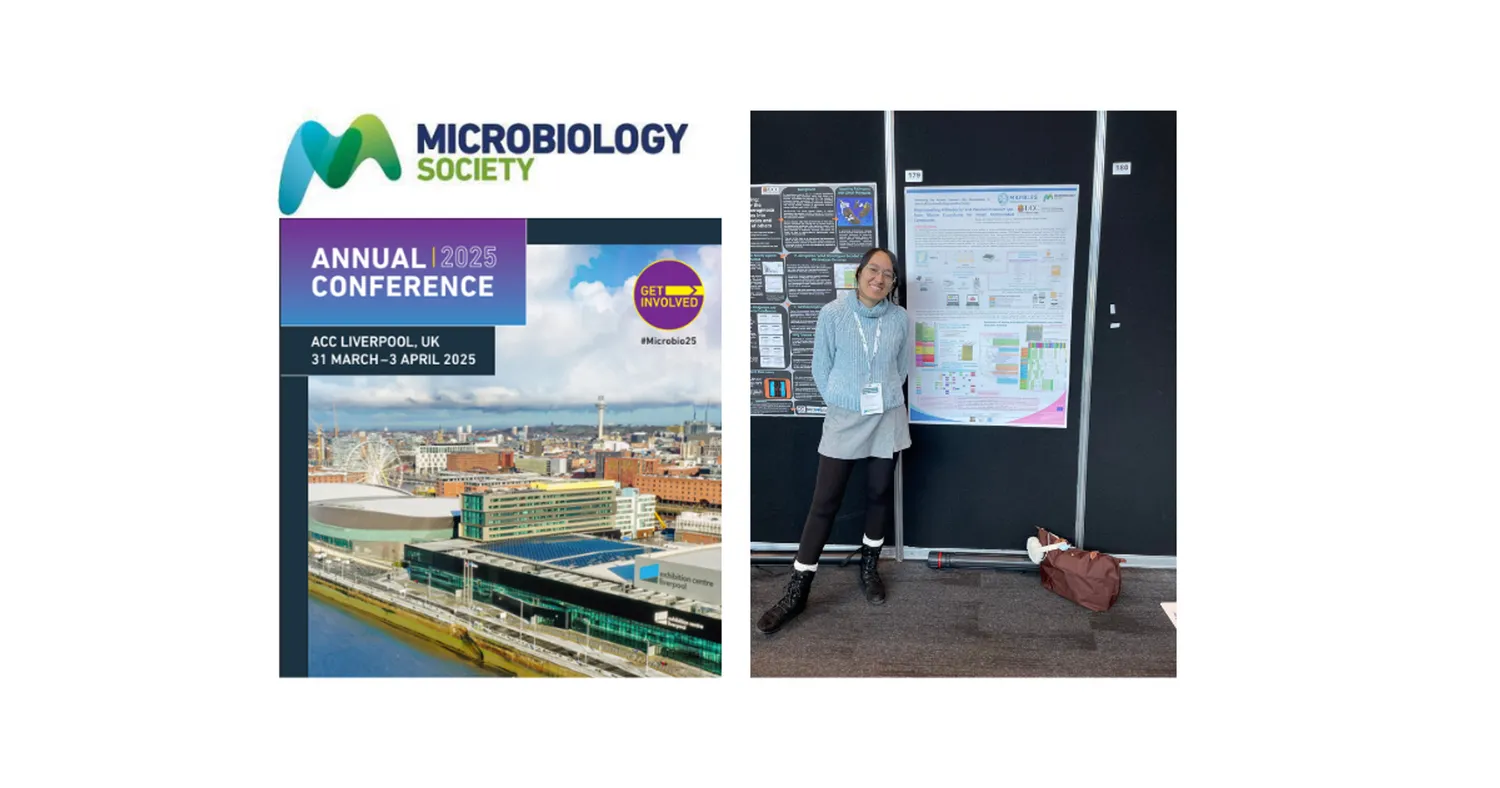Bioprospecting novel antimicrobial compounds from the microbiome of salmon skin

MARBLES researcher Fairouz Gzara from the School of Microbiology in University College Cork (UCC)) presented the research poster: Bioprospecting Arthrobacter & Pseudarthrobacter spp. from Marine Ecosystems for Novel Antimicrobial Compounds at the Microbiology Society Annual Conference 2025 held from 31 March - 3 April 2025 in Liverpool, UK.
As multi-resistant microbial strains are rising, antimicrobial resistance (AMR) is an ever-increasing global problem, novel antimicrobial compounds are urgently needed. MARBLES researchers are investigating marine microbes as potential sources of bioactive molecules. Bioactive molecules or compounds are substances that have a biological activity with direct effects on living organisms. UCC are investigating the skin microbiome of Atlantic salmon (Salmo salar) and have identified Arthrobacter and Pseudarthrobacter species as promising candidates for novel bioactive compound biosynthesis and potential sustainable alternatives to traditional antibiotics used in aquaculture.
In 2025, the Microbiology Society is celebrating its 80th anniversary! In 1945, it was founded by its first members, Ralph St John Brookes, Muriel Roberts, Marjory Stephenson, Alexander Fleming, to name but a few of the visionary microbiologists. The main purpose of the Society is to bring groups of microbiologists together for knowledge exchange and to forge new collaborations, helping to unlock and harness the unique breadth and depth of their microbiological knowledge. It is particularly relevant to MARBLES that founding member Alexander Fleming predicted bacteria would eventually overcome antibiotics and now, the Society has its Knocking Out AMR project which recognises the real threat AMR poses globally as a leading cause of death. Drug-resistant infections are causing over 700,000 deaths per year, primarily affecting lower- and middle-income countries (LMICs).